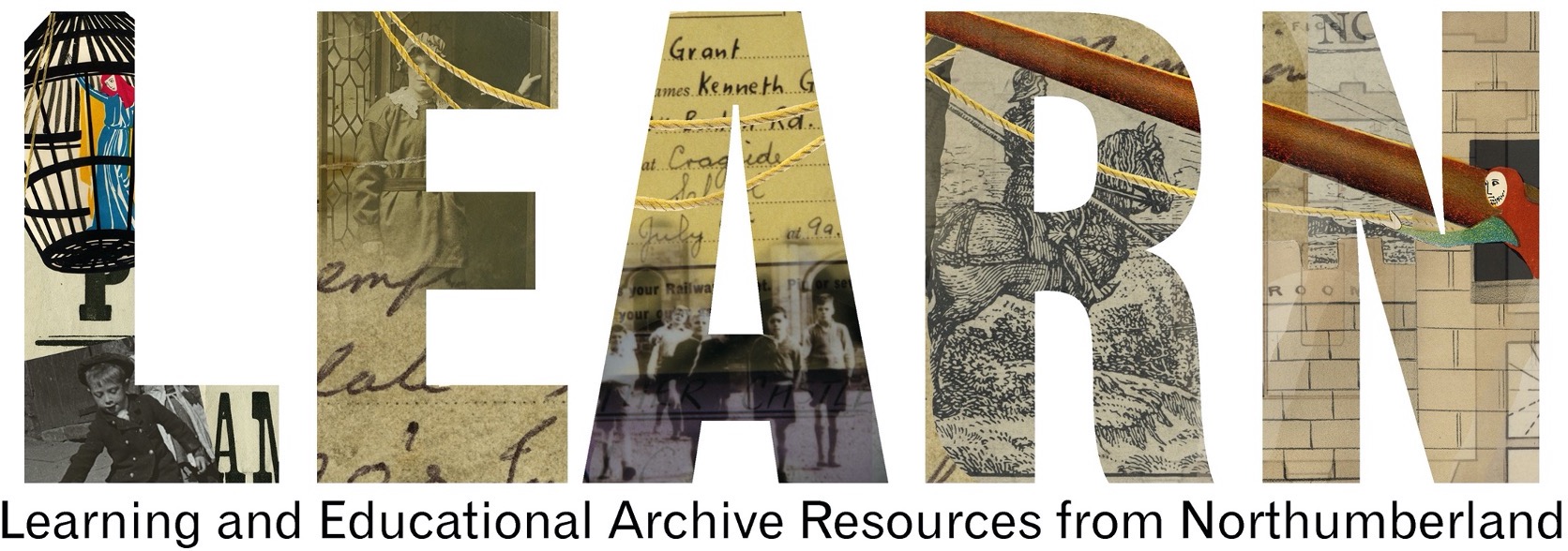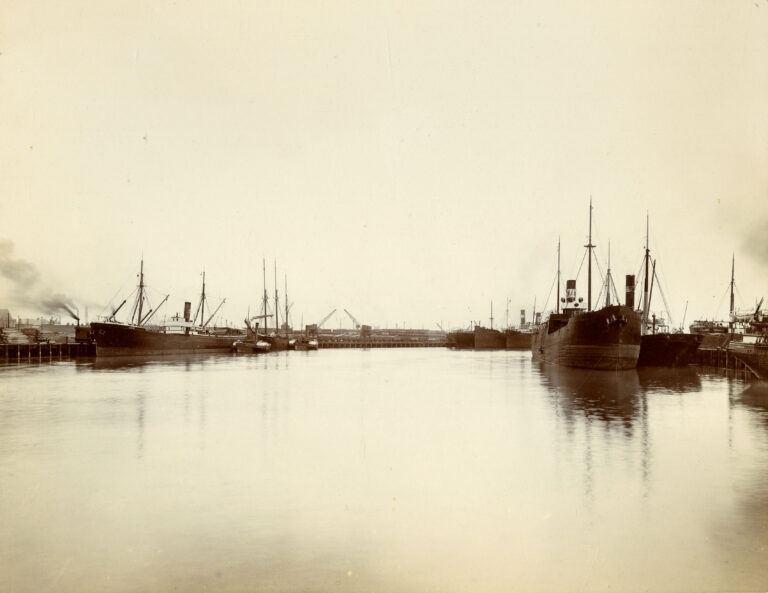Oral History of Arthur C, Coastal Warden
Reference: T/436, Image Reference: PLO/23
Suggested age groups: KS1, KS2, KS3, KS4, Lifelong Learners
Subject areas: History, Literacy, Geography, Science, Art, Design Technology
Download Word Document
Download PDF
Extract 1
Extract 2
CONTEXT
These sound files are extracts (short, edited pieces) from longer oral history interviews preserved by Northumberland Archives. These interviews were made as part of a project to collect the memories of people who lived and worked on the Northumberland coast; “Sustaining Our Coastal Heritage”, 2006-2008.
Arthur was born in the 1960s. He was the Coastal Warden for Blyth Valley Borough Council. He was interviewed 9 November 2006 by Sarah Belcher.
Well, definitely the coal trade changed dramatically. I mean shipping in the port has actually increased in the last three years. Whereas before Blyth was principally a coal port. It would also bring in some tin now and again, paper. And now it has quite a thriving trade and we get all sorts of cargos coming into the port. But the mining I think had the biggest single affect because there was spoil dumped directly into the sea at Lynemouth. Not too far away and that did have an effect on the coastline for quite a way. Also, there was a period of time when fly ash* from Blyth power station was taken out by ships and dumped at sea. A lot of that was washed back in so all of that as well as the sewage that used to be pumped into the sea and chemical waste, industrial waste. All has to have an impact somewhere.
*Fly ash – by-product of burning coal.
So, if you look at the different environments. So, if we start with the harbour and how it has changed with the number of boats and the fishing industry. I mean did you used to go and visit the harbour down here when you were younger as well?
Yes, we would visit the harbour at least once a week. We would go down. And at south harbour as well. Where the fishing boats were coming in. I mean the numbers of commercial fishermen have dropped dramatically over the years. Um and now the sort of staple fishing on the NE coast is the crabbers you know that go out and pot for crabs and lobsters. We do have a few prawn trawlers out there. Um and I believe we have four licensed salmon fishermen in Blyth now. In my youth um every summer from being 13 years old I would go down to Blyth harbour at the beginning of May and get myself a little part time job working on the salmon boats. Pretty much full time in the summer holidays but learning to um set the nets up, so net repairs. If I was not actually out on the boat fishing with them, I would be sitting at the harbour doing repairs to nets and pots. And things like that to earn myself a little bit of pocket money to do whatever I wanted to do. Usually to buy new fishing gear.
ACTIVITIES
ACTIVITY 1
Background
Arthur was born in the 1960s. He was the Coastal Warden for Blyth Valley Borough Council. He was interviewed 9 November 2006 by Sarah Belcher.
SEE
See: Who is Arthur?
See: Which industries are mentioned in the oral history?
See: Which industry does Arthur say has changed the most?
See: Which industry does Arthur say has increased?
See: Which industry does Arthur say has decreased?
See: What types of waste dumping does Arthur mention?
See: Which industry does Arthur say had the biggest environmental impact?
THINK
Think: What is a Coastal Warden?
Think: What is waste dumping?
Think: What is ocean dumping?
Think: Is ocean dumping legal in the UK?
Think: Is ocean dumping legal elsewhere in the world?
Think: What happens to waste that is disposed of at sea?
Think: What is pollution?
Think: How can waste be disposed of safely?
DO
Do: Create word and definition cards for each of the words that are unfamiliar to you. Swap cards with someone else and try to match the words to their definitions.
Do: Write down the impression that this oral history gives you of Blyth.
Do: Compare your impression of Blyth from this oral history to the impression that Alex O’s oral history and Doreen & Cynthia’s oral history gave you of Blyth.
Do: Make a list of the types of waste that Arthur mentions being dumped in Blyth.
Do: Use your list to make a table showing the environmental impact of each type of waste being dumped in Blyth.
Do: Create a poster showing the different types of ocean pollution.
Do: Create a poster showing the impact of ocean pollution.
Do: In groups debate how industrial waste could be disposed of safely.
Do: Discuss the effect that waste and ocean dumping might have had on Blyth’s coastal environment based on what you have learned.
Do: Survey the Blyth coast. Can you find any evidence of the impact of waste and ocean dumping? Does it match what you predicted?
Do: Imagine you are a Coastal Warden while fly ash was dumped at sea from Blyth. Write a letter of complaint to your local MP explaining why ocean dumping should not take place.
Do: Look at green and renewable energy industries.
Do: Survey Blyth today. How many examples of green or renewable energy industries can you find?
Do: Make a miniature version of a crab or lobster pot using recycled materials.
Resources
ACTIVITY 2
Background
These sound files are extracts (short, edited pieces) from longer oral history interviews preserved by Northumberland Archives. These interviews were made as part of a project to collect the memories of people who lived and worked on the Northumberland coast; “Sustaining Our Coastal Heritage”, 2006-2008.
SEE
See: Why were these oral histories recorded?
See: Who took part in these oral history interviews?
See: What is included in the oral history extracts?
THINK
Think: What is an oral history?
Think: Why is it important to record oral histories?
Think: What is the value of oral histories?
Think: What useful information can we learn from Arthur’s oral history?
Think: Who might use oral histories?
Think: How might Arthur’s oral history be used and by whom?
Think: How reliable are oral histories?
Think: What types of oral histories might be recorded?
DO
Do: Imagine you are about to interview a someone who lived and worked on the Northumberland Coast for an oral history. Write down a list of questions or talking points that you might use to prompt them during the interview.
Do: Write down a list of events that have taken place during your lifetime that you think it would be important to create oral history records of.
Do: Write down a list of events that have taken place before your lifetime that you think it would be important to have oral history records of.
Do: Look at the British Library, British Library Sounds and Imperial War Museum websites. Can you find oral history recordings about the events from your lists?
Do: Think of an event that you have experienced first-hand. In pairs, interview each other about your chosen events and create oral history recordings.
Do: Do you think oral history recordings should be made using second-hand stories or should they be made using only first-hand events? Debate this in groups.
Resources
OTHER ONLINE RESOURCES
Website for Oral History Society, includes definition of oral history: https://www.ohs.org.uk/
University of Leicester information sheet on oral history (pdf). Although the language isn’t the most accessible it does discuss value and reliability of oral histories: https://www.le.ac.uk/ur/emoha/training/no1.pdf
Website for Glasgow Women’s Library, blog discussing oral history project, includes definition: https://womenslibrary.org.uk/2017/08/09/what-are-oral-histories-and-why-are-they-important/
British Library website, page for oral history collections: https://www.bl.uk/collection-guides/oral-history
British Library Sounds website, includes oral history recordings: https://sounds.bl.uk/Oral-history
Imperial War Museum website page for oral history collections, one of the biggest oral history collections in the country. Many can be searched and listened to online: https://www.iwm.org.uk/collections/sound
Port of Blyth Heritage website, page about oral history collection, includes links to individual oral histories which have transcripts and 5 minute clips: https://www.blythmaritimearchive.org.uk/content/catalogue_item/port-of-blyth/oral-history


